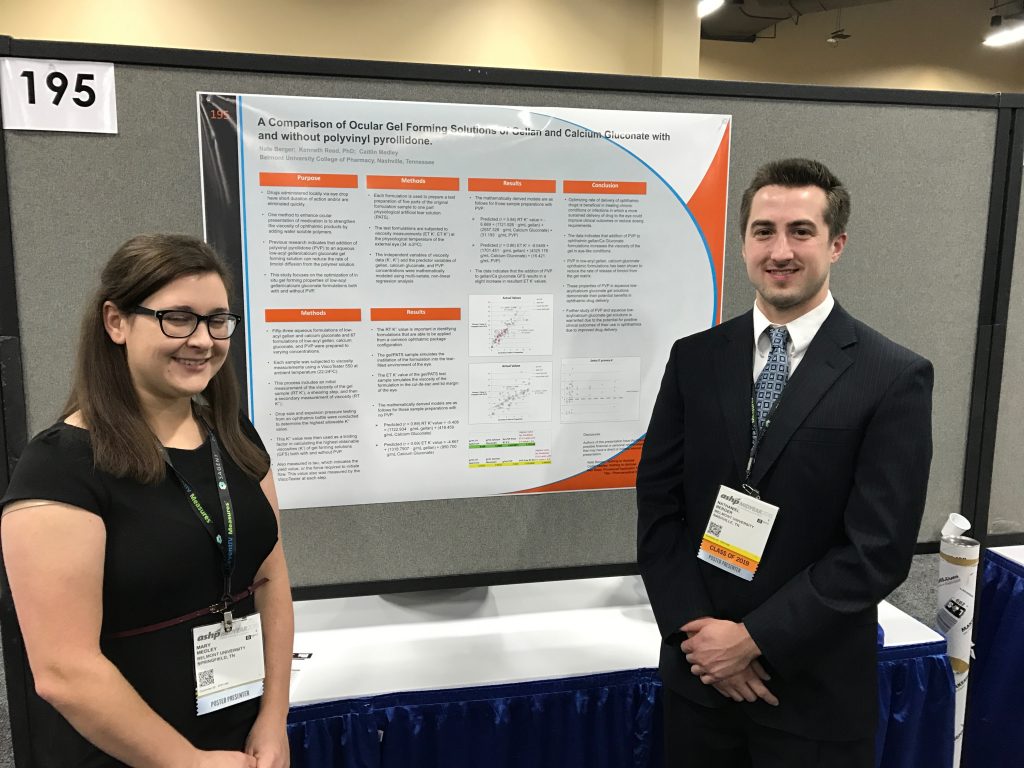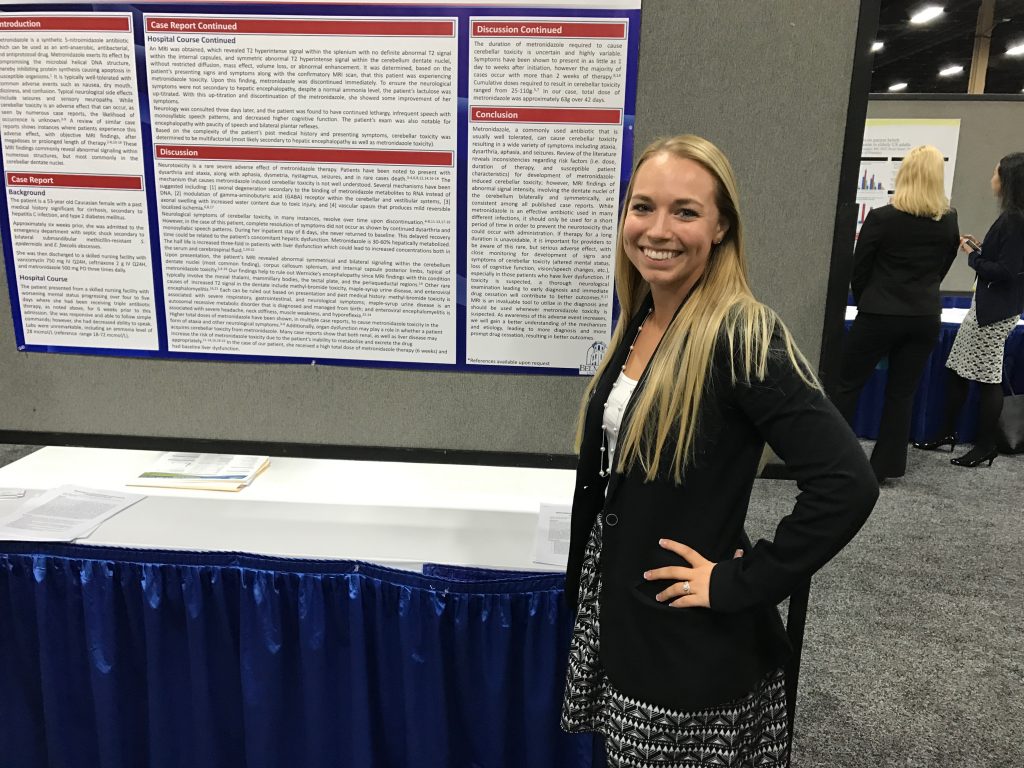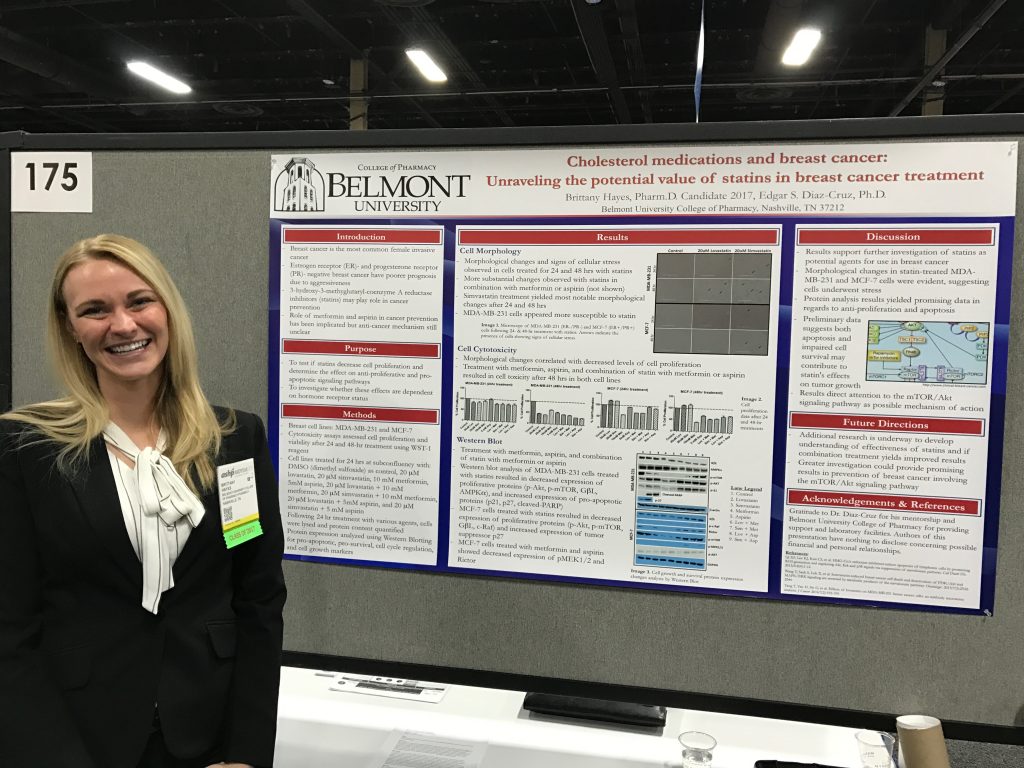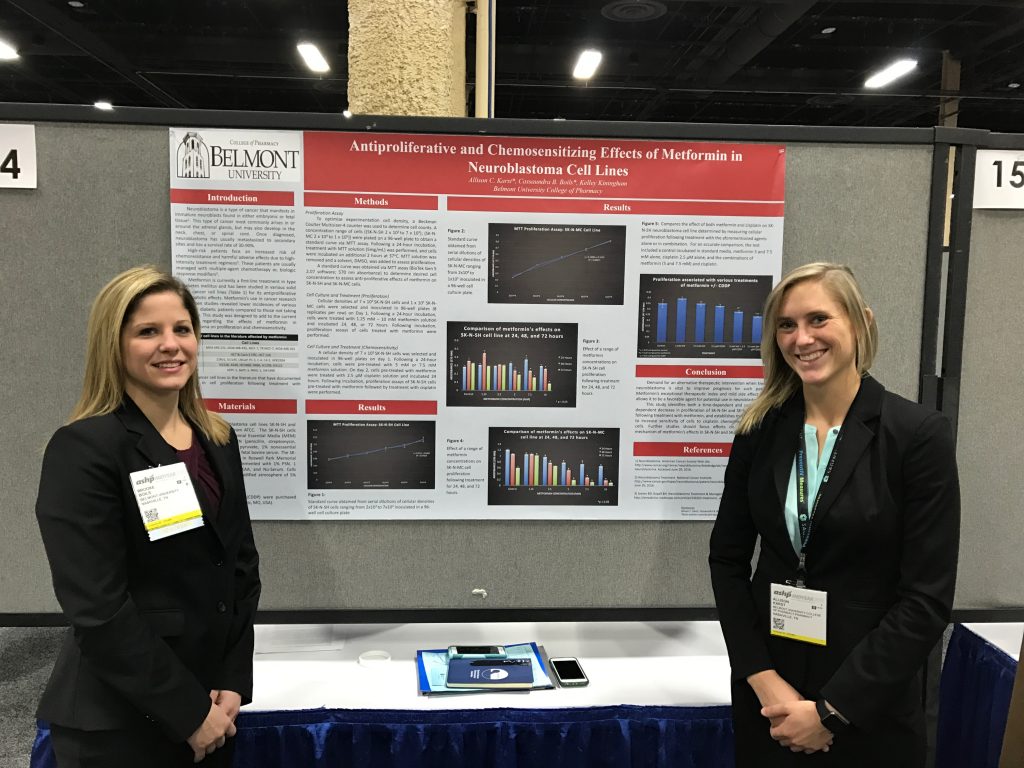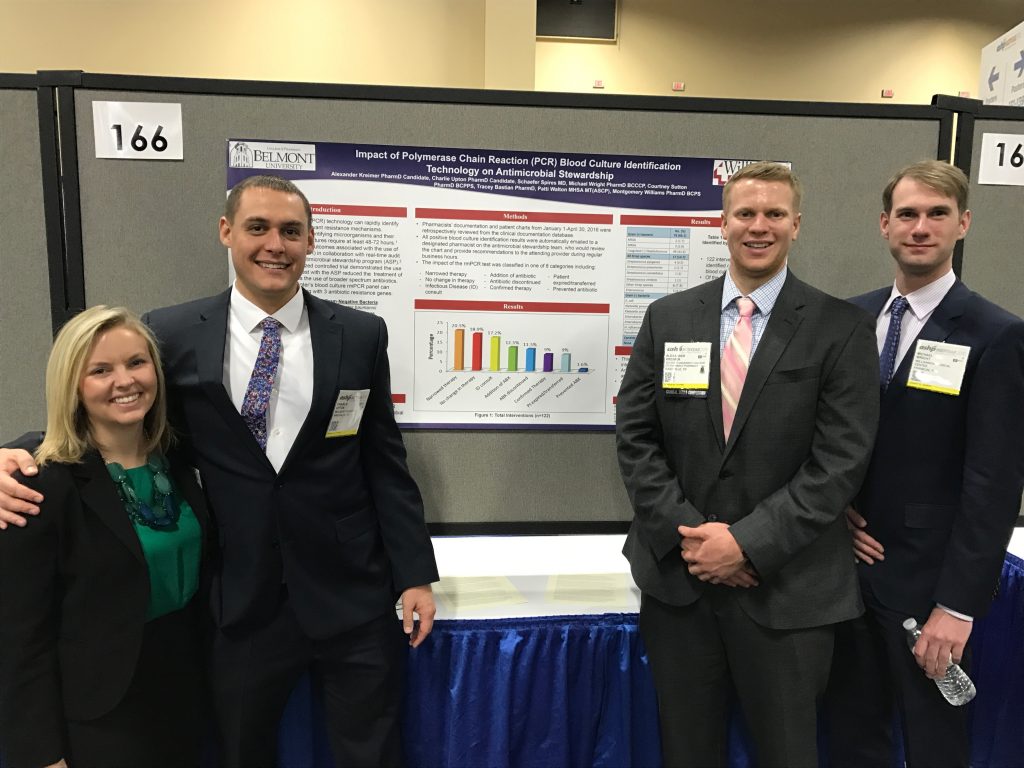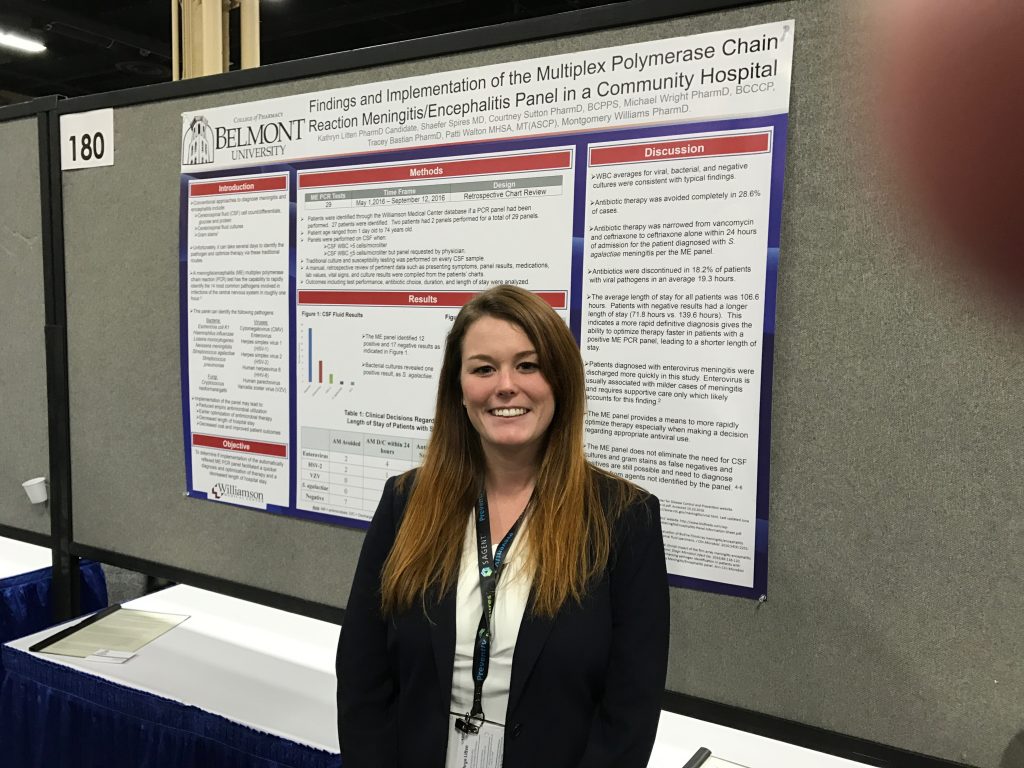Thirty members of the student pharmacists body and five faculty of the College of Pharmacy attended the American Society of Health-System Pharmacists Midyear Clinical Meeting and Exposition.
Presenting a poster at the ASHP Midyear Clinical Meeting is a noteworthy accomplishment and we commend our students who have prepared a poster and presented it at this international meeting. Posters presented included (photos below):
- Comparison of ocular gel forming solutions of gellian and calcium gluconate with and without polyvinyl pyrollidone. (Nate Berger, Caitlin Medley)
- Metronidazole-induced cerebellar toxicity following prolonged course of therapy. (Kelsie Yates and Angel Johnson)
- Cholesterol medications and breast cancer: Unraveling the potential value of statins in breast cancer treatment. (Brittany Hayes)
- Antiproliferative and chemosensitizing effects of metformin in neuroblastoma cell lines. (Allison Karst and Cassandra Boils)
- Impact of polymerase chain reaction (PCR) blood culture identification technology on antimicrobial stewardship. (Alexander Kreimer and Charlie Upton)
- Findings and implementation of the multiplex polymerase chain reaction meningitis/encephalitis panel in a community hospital. (Kathryn Litten)
Student Pharmacists Alex Kreimer and Charlotte Wesley represented Belmont University College of Pharmacy in the international clinical skills competition final rounds, and Dr. Montgomery Williams presented an invited platform presentation titled Antimicrobial Stewardship: Innovative Practices in Community Hospitals.
Belmont student pharmacists and faculty welcomed alumni at a reception in conjunction with the meeting. Many of these alumni are completing post graduate year one and post graduate year two residencies throughout the country.
ASHP’s Midyear Clinical Meeting and Exhibition is the largest gathering of pharmacists in the world. With its focus on improving patient care and medication safety, the meeting is attended by more than 20,000 pharmacy professionals from around the globe. For more than 50 years, the Midyear Clinical Meeting has provided pharmacy practitioners with a value-packed event for advancing knowledge, networking with colleagues, enhancing practice skills, and learning about the latest products and innovations.

